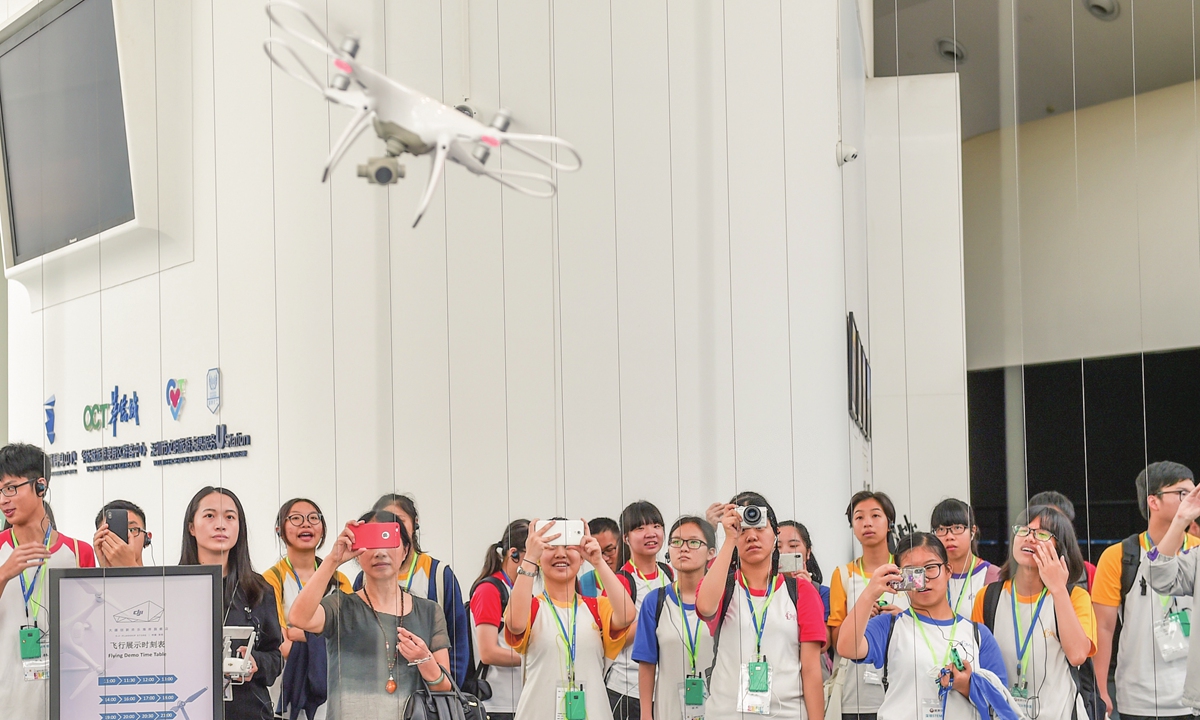HK education bureau to remove books carrying content forbidden by national security law
By Zhao Yusha Source:Global Times Published: 2020/7/6 15:27:05

Students and teachers from Hong Kong visit a DJI flagship shop in Shenzhen, South China's Guangdong Province during a tour to witness the achievements of China's reform and opening-up in June 2018. Photo: Xinhua
The Hong Kong education bureau has vowed to remove textbooks and reading materials in schools that involve inciting subversion, separatism and other illegal content forbidden by the national security law, and will regularly check if such books exist within campuses.
Reading materials provided to students should match the curriculum and have suitable content, and school administrations should also regularly check students' books to make sure they are appropriate for studying, the bureau told the Global Times on Monday.
The bureau vowed to remove any books found to contain content that encourages subversion, terrorist activities, collusion with foreign forces, or other illegal content forbidden by the newly enacted national security law, unless the content aims to explain the law to students, said the bureau.
Schools still have the right to prepare textbooks for students under the guidance of the bureau, but should also carefully examine books that are selected. Once problems emerge, the bureau will follow through.
Tang Fei, principal of Hong Kong's Heung To Secondary School (Tseung Kwan O), who is also a member of the council of the Chinese Association of Hong Kong and Macao Studies, told the Global Times that it is the same as schools being asked to reject books that promote pornography and violence.
"If those books are not allowed to enter the campus, why should books that incite independence be allowed? Also, the newly enacted national security law has said clearly what kind of behavior is considered to endanger national security," said Tang.
The national security law said that the Hong Kong government should raise residents' national security and legal consciousness through schools, social organizations, media and websites.
Previously, local education experts and observers had called on the Hong Kong education authority to strengthen supervision of its curriculum and examinations after a controversial question appeared in a recent history exam asking students whether Japan's invasion of China in WWII did more good than harm.
Posted in: HK/MACAO/TAIWAN